
Voluntary disarmament: Only 1,500 arms collected due to public mistrust in gov’t
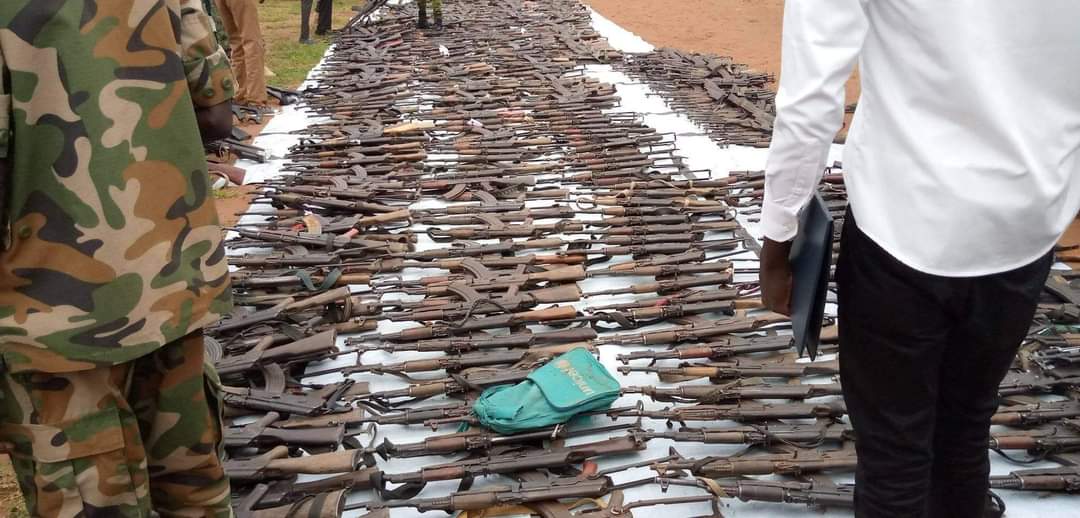
“In the past when local tools like sticks, arrows and spears were used for fighting, the government would easily control intercommunal conflicts, but currently, it’s too devastating because civilians are using the same machine guns that the government is using and when conflict erupts between communities, it’s impossible for police or law enforcement agencies to intervene”.
Several government attempts to disarm civilians in South Sudan continue to fail as armed communities resist the ongoing disarmament.
The government has been conducting voluntary disarmament campaigns in Warrap and Lakes states since July this year but managed to collect only 1,500 arms in Tonj in the recent disarmament efforts that turned violent after youths resisting to give up arms clashed with the disarmament forces leaving score dead and several others injured and hundreds displaced.
The presence of arms in the hands of civilians has led to the killing of many people during intercommunal fights and cattle raids since they use modern weapons.
In the last three decades, the government used to intervene by using heavy machine guns, and conflicting communities or groups would easily be separated but currently, it’s too devastating because civilians are using the same latest machine guns that the government is using and when conflict erupts between communities, it’s impossible for police or law enforcement agencies to intervene, according to local leaders.
“In the past when local tools like sticks, arrows and spears were used for fighting, the government would easily control intercommunal conflicts.” Says William Wol Mayom, former minister in the defunct Tonj state.
As long as South Sudan borders remain porous, arms will always floor into the country through rebels and armed communities living along the borders. Mayom says the conflict in the country also gives platforms to some local businesspeople to trade in guns which they acquire from desperate soldiers in need of money.
The head of the United Nations Mission in South Sudan says for the country’s civilian disarmament campaign to succeed the government should first build trust among the country’s warring communities.
David Shearer says the government should also improve service delivery in communities where many civilians are armed so people can see the benefit of coexisting peacefully.
David Shearer said armed civil groups should be disarmed peacefully rather than by force because community members often feel they need to have guns to protect themselves from other groups. He told The Insider in an exclusive interview that forceful disarmament makes communities feel vulnerable to attacks adding, it’s important that the government fosters trust between
communities.
“It needs to be bringing these parties and different groups together, reconcile and build peace amongst them, looking at ways in which they can trust each other and can get along and live along with each other. When that happens then you start looking at taking or asking people to hand over their weapons.” Shearer said.
“So, if they feel secure, they are willing to hand over their weapons,” Shearer added.
UNMISS chief David Shearer (Photo Courtesy of UNMISS Media)
Geoffrey Duke, director of the South Sudan Action Network on Small Arms or SSANSA, a network of civil society organizations working to reduce and prevent gun violence in South Sudan says when disarmament is undertaken without proper consultation with those carrying arms, there’s always going to be resistance and bloodshed.
He says the government should collaborate with NGOs, UN Agencies, community leaders and Church leaders to foster dialogue on finding root causes of inter communal fights.
Some civil society activists say the government’s disarmament campaign is failing because many people feel the government cannot guarantee their security.
Civilian disarmament will fail to achieve peace between communities because people feel the government is not doing enough to
protect them, so they buy guns, says John Achiek De Mabior, executive director of the Jonglei Institute for Peace, Democracy and
Development.
“That’s why we have cattle raiding on a daily basis, child abduction on a daily basis, killing of innocent civilians on a daily basis and road ambushes. And these people who are doing all these are all civilians, not national army.”Achiek
told The Insider.
To prevent people from buying more guns after they are disarmed, De Mabior says the government should create an atmosphere in which civilians are willing to hand over the weapons they own. He says the government could also offer civilians money for every gun they surrender.
“For example, maybe the civilians have around two million firearms, the easy way is that the government of South Sudan should be able to use six million dollars to get two million firearms, not just buying and storing but buying and destroying them.”
Shearer says the government should also provide basic services to communities where violent inter-communal conflict is rampant. He says UNMISS has learned that inter-communal conflicts are sometimes caused by a lack of education, water for people and cattle, and a lack of economic opportunities.
Shearer says a few years ago UNMISS built a road from Bor to Pibor in Jonglei state where the Dinka and Murle communities have engaged in inter-communal attacks for several years. He says within days? goods from the Bor area were able to flow to Pibor
when commodity prices were very high in the market.
“The range of goods in the market were very limited. Suddenly there were new goods in the market and people were able to waive the burden. At the same time, the Murle were also able to get their cattle down to the big cattle market in Bor and sell their cattle. So, both sides were able to benefit from cattle being sold, money being made, markets being stimulated, and people were able to get goods to buy.”
De Mabior says the government should quickly implement Chapter Two of the revitalized peace agreement which focuses on security arrangements, including training and unifying the various armed groups into a national force so that a trained, professional army can safely disarm civilians.

















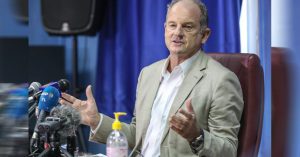
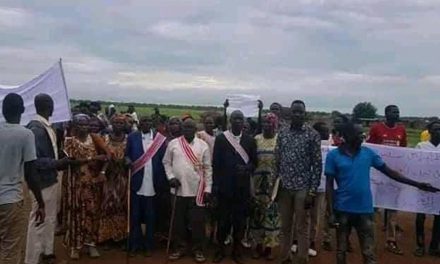
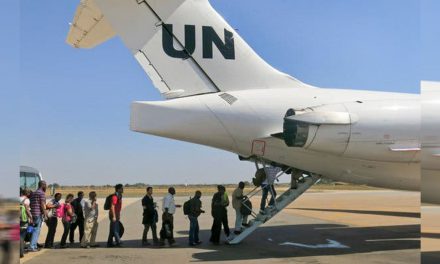
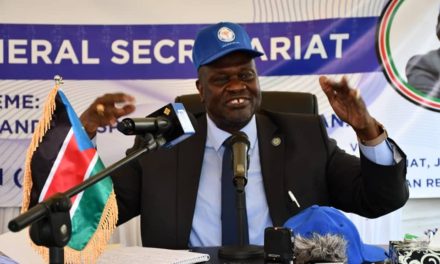

Recent Comments